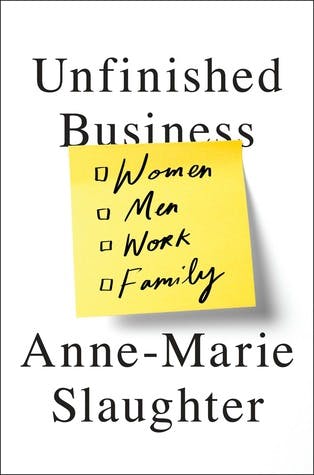“I work hard for my money, I work hard for my kids, and I think we all deserve better,” Pamela Flood told me in 2012, her voice ragged from leading chants on the picket line. Growing movements of workers in retail and service positions have forced their issues onto the agenda—unpredictable schedules, the “clopenings” that captured national attention and spurred action, the lack of any kind of reliable child care, the inability to take any time off for illness or to care for a family member. Women like Flood, a mother of three who worked two jobs in New York City, one at Burger King and one at CVS, and Kim Frazier, who worked through her second pregnancy, despite health issues, at Walmart, became the faces of these movements.

Not just the low wages, but the conditions of work are now major topics of discussion—in part simply because the U.S. has never had a functional support system for working poor families—and the demands of working people are making their way into the policy platforms of would-be presidents. In the past year, Hillary Clinton has called for paid family leave as part of her campaign for president. Bernie Sanders has gone a step beyond and called for paid family leave and paid vacation time. Paid sick days have gone, in just a few years, from a fringe issue that couldn’t make it through New York City’s liberal City Council to a winning issue in multiple states and cities from Seattle to Newark.
Enter Anne-Marie Slaughter, who wrote a piece for The Atlantic in the summer of 2012 with the eyeball-grabbing title “Why Women Still Can’t Have It All.” The piece garnered some two million clicks and became, as Sheryl Sandberg’s Lean In did in 2013, a lightning rod for feminist debate about the workplace. Slaughter, former director of policy planning at the State Department under Hillary Clinton and now president and CEO of the New America Foundation, reminded us that even for women at the very top of the economic and political ladder, the expectations of work in the U.S. don’t allow for much of a life outside of the office. Her new book, Unfinished Business: Women Men Work Family, expands on this topic, moving beyond the question of “having it all.” Instead, she writes, “Perhaps the problem is not with women, but with work.”
We have overvalued the workplace, Slaughter writes, both our culture as a whole and particularly a certain brand of feminism that saw the workplace the way to liberation from the drudgery of housework and childcare. In a possibly-unconscious echo of the Wages for Housework movement of the 1970s, Slaughter argues, “The urgent question of how to fit caregiving together with our goals for ourselves is common to all women.” Society still expects women to do the bulk of the housework, the bulk of the care work—women remain concentrated in caring-labor professions like teaching, nursing, and, increasingly, home health care. And we are expected to do that work for the love of it, rather than for the high salaries and prestige that accompany jobs in finance, academia, or politics.
Slaughter is a welcome addition to the ranks of those calling for the revaluation of caring labor, whether paid or unpaid, as a deeply important part of the work of building a society. Why should productive labor—that done creating value in the workplace—be considered more important, be valued more, or better paid? This is a question feminists have been asking for decades, often out of the public eye, away from what was considered “mainstream” discourse, but Unfinished Business aims to put that discussion front and center. Family life, care work, the struggle to raise a family and pay the bills at the same time are not just women’s problems, she argues, and our continuing definition of them as such has kept them marginal. But men as well as women, and a growing number of gay and lesbian families who don’t have essentialized gender roles to fall back on, need to be part of this conversation.
Taking a page from National Domestic Workers Alliance director Ai-jen Poo, whose recent book Age of Dignity calls for the building of a “care grid”, she hints at the revolutionary changes that these questions imply for society:
Challenging employers, politicians, and ordinary citizens to explain why, exactly, it is more important and valuable to compete with one another than to care for one another, forces a hard and searching look at what we say but do not do, what we assume but won’t admit.
But Slaughter is unwilling to give up entirely on a system that has, mostly, worked for her, and argues for a balance between competition and care rather than a complete break with the competitive ideals of the capitalist workplace. Less central to her argument but at least nodded at, also, is the right to a life outside of work that isn’t just the equally difficult work of raising children. This has become, perhaps, particularly important as the rattled economy and worsening working conditions have left many people looking for fulfillment somewhere other than at work. Self-care, a buzzword today heard from Hollywood starlets and social-movement activists alike, also gets acknowledged here, as does the importance of vacation and of just plain working less.
Slaughter writes in a conversational style, sharing plenty of stories from her own life, her own successes and struggles, and even her emotional reaction to the critics who called on her to look beyond her own experience as a wealthy, successful heterosexual white woman. She’s clearly listened to such criticisms—memorably, Tressie McMillan Cottom called it “trickle-down feminism”—as well as criticisms of Sandberg’s book. And she has attempted to address them, looking for solutions that will apply to “all women,” and including some anecdotes about the struggles of poor women alongside the high-flying CEOs and lawyers that pepper the book. “We must rework our society so the expense and headache of childcare and eldercare doesn’t sink women and their families,” she writes, “and we need to remodel our workplaces so that our employers no longer assume that a lawyer or businessperson can be available 24/7 to answer email or that a restaurant worker or clerk can be available 24/7 to staff a shift.”
This is an admirable goal, one I am entirely on board with, but in many ways the book falls short of providing even a rough blueprint for how to do so. Slaughter is, of course, a professional in the field of foreign policy analysis, where a hard-boiled understanding of power—who has it, who doesn’t, and how to change those scales—is necessary. But within this book, there is very little understanding of how power works on the more intimate levels of the workplace and the home, or what political scientist Corey Robin calls “the private life of power.”
She briefly touches on the idea of worker autonomy and control early on, noting that the reason so many workplaces refuse work-from-home arrangements is based on the theory that workers will be more attentive and productive if they are observed directly by managers, who can issue a rebuke for time spent slacking. But by the end we are laden with sunny anecdotes about “Train[ing] Your Boss” to give you more time off. In Slaughter’s telling, the most important thing to get the boss to see the advantages of your cause: the eight-hour day, she suggests, resulted from research that convinced Henry Ford it was efficient, rather than from the efforts of tens of thousands of workers striking and protesting for it for decades. This might seem like nitpicking, but it is actually emblematic of the problems of this book. Too often Slaughter frames the problems with work and the family as though we just haven’t figured out the solution yet, when in reality, workers have been proposing workable solutions for years. The obstacle remains a question of power and political will.
In my days waiting tables, for example, I tried to ask for a flexible schedule so that I could manage my other work commitments—not balancing work and family, at the time, but actually balancing work and more work—and found myself threatened with firing if I didn’t show more dedication to the restaurant where I scrubbed walls for $2.13 an hour when it was slow. Kim Frazier just laughed when I asked her if she thought Walmart would ever give her paid maternity leave—she and her coworkers had led a sustained campaign just to get the company to grant pregnant workers lighter duty on the job, so that she no longer had to lift twelve-pack boxes of canned goods. Controlling labor, if anything, has risen to new heights in recent years, as Esther Kaplan detailed in a recent piece for Harper’s, with new technologies allowing the boss to track every movement a UPS driver makes, to split the day down to fifteen-minute bits and send retail clerks home early. Bosses demand their employees be flexible, not the other way around.
Unwilling, it seems, to make a firm argument for a set of policies that might be perceived as partisan, Slaughter calls instead for “experimentation”—as if there hadn’t been plenty of “experimentation” with family policy around the world. The results of more generous paid leave policies in Sweden, Denmark and elsewhere are already well known. As she notes herself, the U.S. is one of a vanishingly small group of countries that provides no paid maternity leave, and most other economically advanced countries have a variety of supports for parents. Given that Slaughter is currently the head of a think tank that produces policy papers aplenty, it seems hard to believe that she doesn’t have ideas of policies that would help. The book would have benefited from a forthright argument for them.
In calling for change, Slaughter is somewhat dismissive of self-help books, but without a deeper probing of the power relationships on the job and within the family, and without an argument for policies that would help change those power relationships and provide real supports for all families (and family-free people, too), what’s mostly left in this book is career advice, once again, for upwardly mobile would-be parents. It could be an important contribution to changing the culture of overwork for the people for whom such a thing is a choice, but as Slaughter herself writes, for many people and particularly for many women, work and the conditions of it are not a choice at all.
